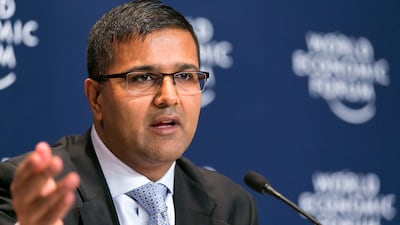Teachers need to be at the centre of decision-making in education, particularly when technology is being introduced into classrooms, a global summit was told on Friday.
About 36,000 teachers and educators came together for the Teacher Tech Summit 2022, an online conference for teachers.
The meeting was organised by T4 Education, a platform for educators and schools, and co-hosted by the World Bank and Owl Ventures, a venture capital firm that focuses on education technology.
T4 Education
Vikas Pota, founder of T4 Education and the Teacher Tech Summit, said: “In all the conferences I’ve been to around the world, I never once saw a teacher invited to be a part of the EdTech discussion.
“You always see policymakers, CEOs, tech entrepreneurs and investors. But it's teachers who are on the front line, delivering education to the next generation.
“If governments and tech companies want to know what works in classrooms, they need to listen to teachers. And if they do, we’ll be able to better harness the right education technology to improve education.
“Policymakers and researchers are often in a bubble of their own. Then you have the innovation community, start-ups, investors. You have teachers in schools who are seen as consumers, as opposed to designers and producers and allies and collaborators.”
Bridge the gap
Mr Pota said it was important to bridge the gap by talking.
When it came to the design of education tech policies for governments, he said teachers and policymakers could have their say.
He said training teachers and ensuring their professional development was a priority.
“A lot needs to be done to make sure that the professional development of teachers, and teacher training, really come front and centre, especially with regards to the use of technology in education, it comes front and centre of their agendas and their investment plans,” he said.
The summit brought together teachers, tech entrepreneurs, governments and academics from around the world to build a common understanding of the potential of technology in education, accelerate innovation, share best practices and ensure the lessons of the pandemic were learnt.
Missed opportunities
Karen Giles, a head teacher at Barham Primary School in the UK, said teachers' opinions were not sought often enough.
“I think teachers' voices are heard and sought in pockets. And then sometimes there are generalisations that are made as a consequence,” said Ms Giles.
“Our community needs to … listen to every individual to find out about the specific needs of their context and be able to address that in a way which is affordable.”
Ms Giles said the developers of education technology should ask pertinent questions and listen to what teachers were saying about what they really needed.
She said every teacher had a story to tell about the opportunities that were missed and how children were let down on a global scale.
“Through the generosity of corporate donations, we have things like refurbished laptops and devices. But some had little or no connectivity [during the pandemic]. We had pupils sitting in one room using their parents' phones and data to access online learning,” she said.
The school brought pupils into school and produced packs of photocopied worksheets and delivered these by hand.
“There must be a way in which the education technology community can help us,” she said.
“When they hear about those real-life experiences, from the audience, at this summit, and the participants in the community and this summit, they will hear about a lack of development in fine motor skills, confidence, independence, the learning retention of basic literacy and numeracy, writing stamina gaps in the curriculum knowledge [because of the lockdown].”
Mayank Dhingra, senior education business leader for Middle East, Africa and Eastern Europe at HP said that teachers had been under immense pressure to quickly pivot the way they taught, as they transitioned to hybrid and online learning models.
He spoke of the need for expert guidance of all aspects on the move to digital learning.
He said education technology could improve learning outcomes, level playing fields, inspire creativity and free up teachers to spend more time on teaching.


